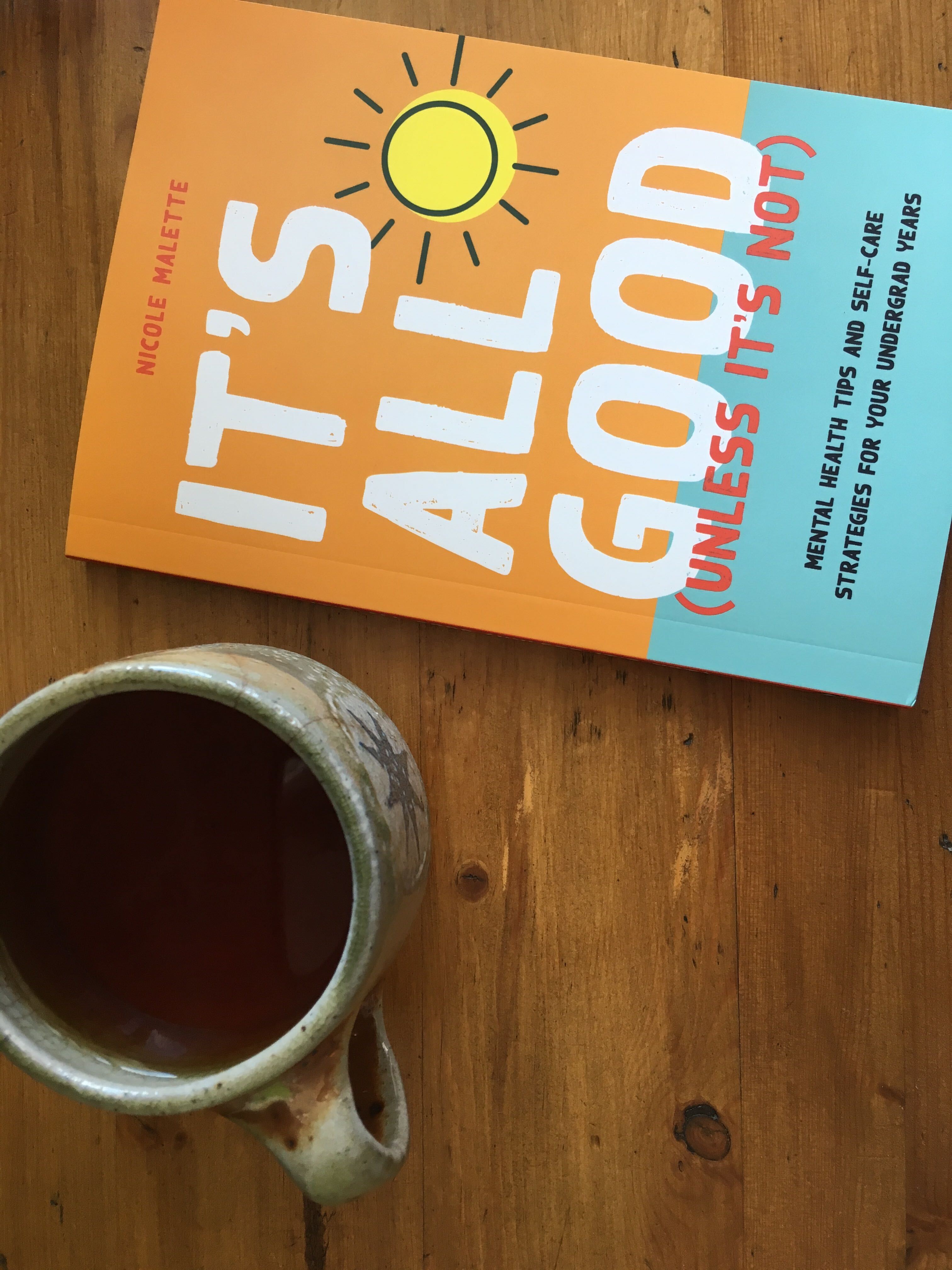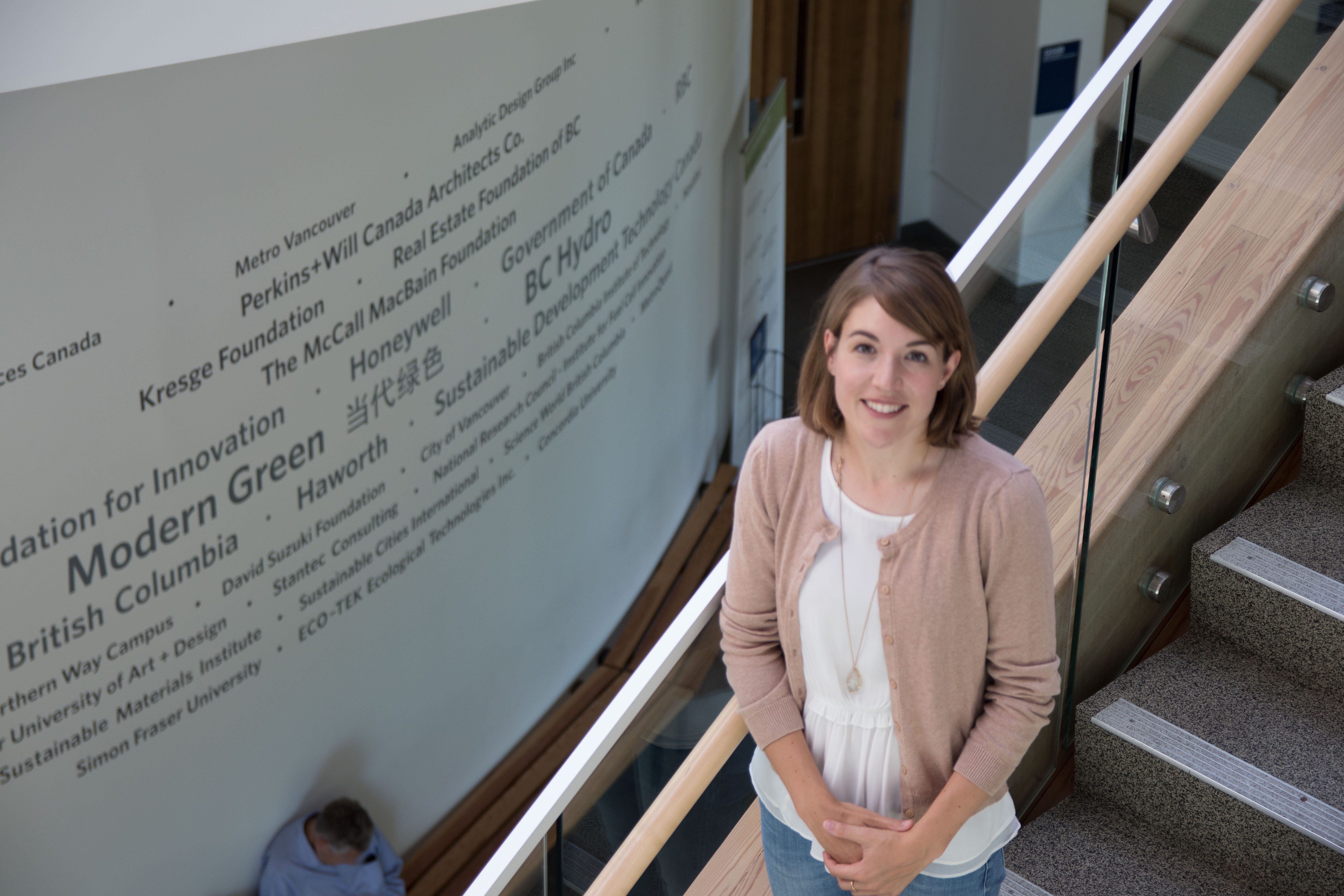Not-So-Back-To-School: Returning to University and College During COVID-19
Posted: Friday, September 04, 2020
By Nicole Malette, author of It's All Good (Unless It's Not): Mental Health Tips and Self-Care Strategies for Your Undergrad Years
I still get excited about the start of term. I love hearing about new programs, seeing new faces and reconnecting with friends. But, this school year looks a bit weird. For example, I won’t get to walk into lecture hall and meet students face-to-face. My commute to class will involve walking 20 feet from my bed to my desk. Planning lectures now means that I have to make sure my partner isn’t holding virtual meetings at the same time as me, in our tiny apartment (… or setting off the fire alarm with his bread making). Setting up assignments also newly involves juggling global time zones and national technology restrictions. I’m excited for this school year, but I also feel a bit apprehensive.
Maybe you’re feeling this too. With the continuing restrictions necessary under the COVID-19 pandemic, you probably won’t get to experience the freedom of moving away from home, meeting new people or having face-to-face interactions with university staff. Navigating your online courses and not having the opportunity to hang out with friends might leave you feeling isolated and frustrated this fall. However, that doesn’t mean you should throw in the towel (I’m not!). There are a lot of resources and strategies you can use to navigate some of these new challenges.
For example, many of you will be accessing your courses from different time zones. A 1:00pm class in Vancouver is a 5:00am class in Busan, South Korea. Participating in lectures or taking tests through the night is not sustainable. If you have major conflicts in your timetables or if the professor has made an online assignment only accessible at a specific time that doesn’t work for you, let them know. Instructors and professors are navigating these new online environments just like you. If you let them know about scheduling conflicts sooner, rather than later, they can do their best to accommodate you.
In addition to navigating new online courses, working remotely might leave you feeling disconnected from campus life. If you’re not feeling connected to your instructors or teaching assistants, try taking part in their virtual office hours or by sending them an email. You don’t need to be experiencing an academic problem to reach out. Letting instructors/teaching assistants know about a reading you enjoyed or a connection you made between course everyday life is a great way to start building relationships and feel more academically connected.
If you’re feeling disconnected to your peers on campus there are also some steps you can take to build those relationships. During the first week of classes the UBC Alma Mater Society (AMS) is holding a number of virtual and in-person events to help you get to know other students. For example, in addition to virtual Imagine Day on September 8th, they are also hosting a virtual improve night on September 15th, a comedy night on September 17th, and an online meditation session on September 21st. If you live in Vancouver and want to attend one of their safe outdoor gatherings, they are also hosting an outdoor yoga on September 14th at Maccines Field.
Another way you can try to keep up with campus-based social life is by joining on-campus clubs remotely. Many of the usual student clubs are hosting online events. If you're having trouble connecting with others of similar interests, while you're stuck at home, this can be a good way to meet new people. If you also want connect more with people in your courses, try taking part in online discussions (if they are made available by your instructor). If your instructor did not create an online discussion platform for your course, try reaching out to them and asking if you can make a study group with other students from the class. Most instructors will be happy to work with you to connect with others in the course.
Lastly, I think it is important for us to all have some compassion for ourselves. Learning how to do new things and meet new people takes time and energy (and sometimes a few mistakes). It’s unlikely that you’ll roll into your courses and (someday) onto campus without experiencing some challenges. And this year might be more difficult than others. But, just like rings of a tree, these challenges make up who we are and how we face future problems. Recognize that and give yourself some space to grow. And if you can’t manage all of these problems on your own, don’t be afraid to ask for help when you need it. There are people in your life and on campus who care about you and are ready to help (even if they don’t know who they are yet).

Nicole Malette is an instructor and PhD candidate in the Department of Sociology at the University of British Columbia. She is the author of It's All Good (Unless It's Not): Mental Health Tips and Self-Care Strategies for Your Undergrad Years, available now in print and open access PDF.
